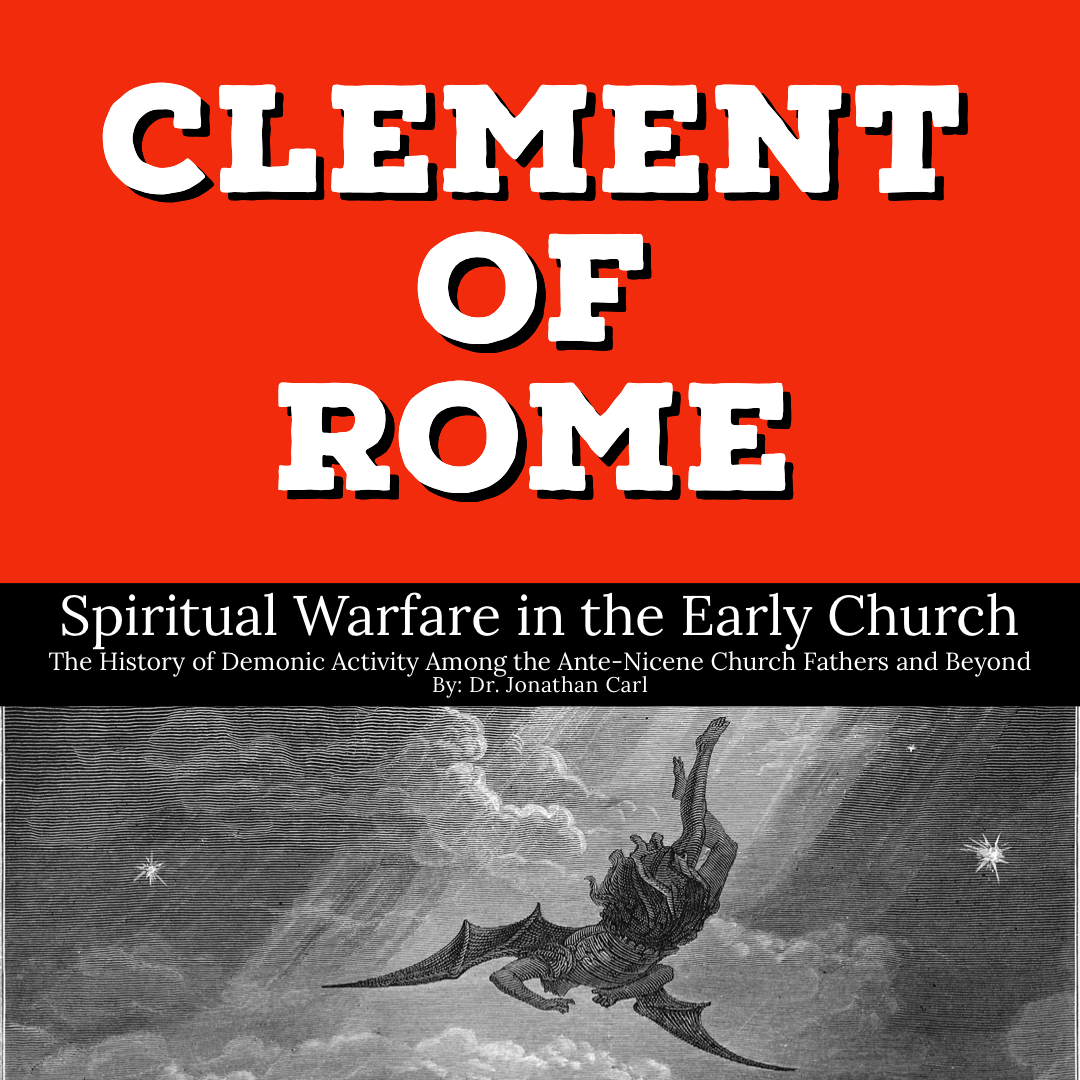CLEMENT OF ROME
Clement of Rome, or Pope Clement I, is believed to have been a disciple of Peter and a co-worker with Paul (Phil 4:3; AD 57) and one of the first leaders of the church. In his letter to the church at Corinth, Clement references the war-like nature of the call for Christians to “act the part of soldiers” in following the commandments of Christ.[1] Clement seemed aware of spiritual warfare and called for Christians to actively engage in the battles they found themselves in.
Two letters that claim Clementine authorship, but are likely third or fourth century writings by another author, place particular emphasis on the role of exorcists within the church.[2] The writer interestingly dedicates a significant portion of a chapter to the practice of exorcism. This early, yet pseudopigraphal (false-named), reference gives significant weight to showing that the practice of exorcism did not die out with the apostles. The author exhorts his Christian brothers to take initiative in visiting those who are “harassed by evil spirits.”[3] He describes such activity as “suitable and right and comely” and places a primacy on intelligent and authoritative prayer.[4] The author encourages prayers rooted in “true faith,” cautioning against formulaic prayer.[5] The writer reminds believers that empowered prayer is characterized by being continuous, focused, pleading, holy, humble, pure, and cheerful, and with noble intentions.[6] He emphasizes how an effective deliverer only exercises their powers through the help of God. Such empowered warriors put their own flesh to death and seek the “power of the Holy Spirit” through “fastings and prayers and perpetual watching, together with your other good works.”[7] He connects the practice of exorcism with healing. He also commends exorcism as a gift from the Lord and a practice that will be rewarded. These writings, although pseudo-Clementine, point to an early understanding of spiritual warfare that emphasizes God’s power being accessed primarily through prayer.
[1]Clement, First Epistle of the Blessed Clement the Disciple of Peter (ANF 1:5) accessed December 30, 2013, http://www.ccel.org/ccel/schaff/anf01.ii.ii.html. Corresponding scriptures are found in Phil 2:25, 2 Tim 2:3, and Phlm 1:2.
[2]M. B. Riddle, “Introductory Notice to Two Epistles Concerning Virginity” (ANF 8:53) accessed December 30, 2013, http://www.ccel.org/ccel/schaff/anf08.v.ii.html.
[3]“This also, again, is suitable and right and comely for those who are brethren in Christ, that they should visit those who are harassed by evil spirits, and pray and pronounce adjurations over them, intelligently, offering such prayer as is acceptable before God; not with a multitude of fine words, well prepared and arranged, so that they may appear to men eloquent and of a good memory. Such men are ‘like a sounding pipe, or a tinkling cymbal;’ and they bring no help to those over whom they make their adjurations; but they speak with terrible words, and affright people, but do not act with true faith, according to the teaching of our Lord, who hath said: ‘This kind goeth not out but by fasting and prayer,’ offered unceasingly and with earnest mind. And let them holily ask and beg of God, with cheerfulness and all circumspection and purity, without hatred and without malice. . . . By your fastings and prayers and perpetual watching, together with your other good works, mortify the works of the flesh by the power of the Holy Spirit. He who acts thus ‘is a temple of the Holy Spirit of God.’ Let this man cast out demons, and God will help him. For it is good that a man help those that are sick. Our Lord hath said: ‘Cast out demons’ at the same thee commanding many other acts of healing; and, ‘Freely ye have received, freely give.’ For such persons as these a goodly recompense is laid up by God, because they serve their brethren with the gifts which have been given them by the Lord.” Clement, First Epistle of the Blessed Clement the Disciple of Peter (ANF 1:5).
[4]Ibid.
[5]Ibid.
[6]Ibid.
[7]Ibid.
